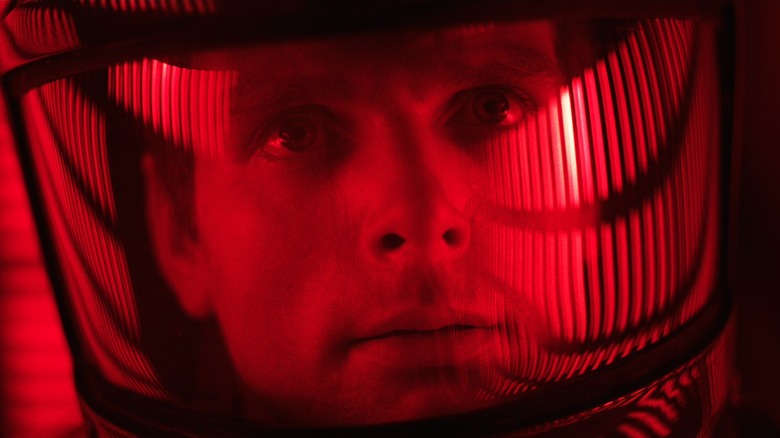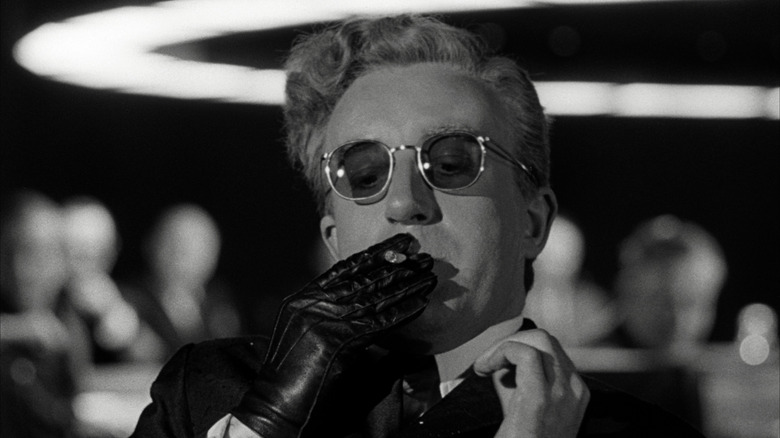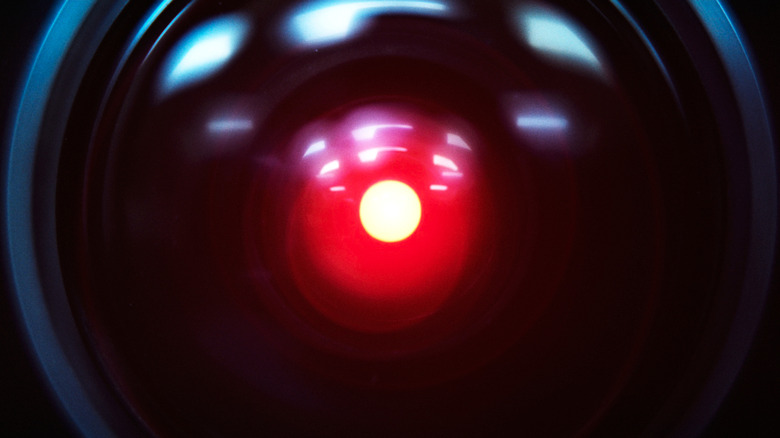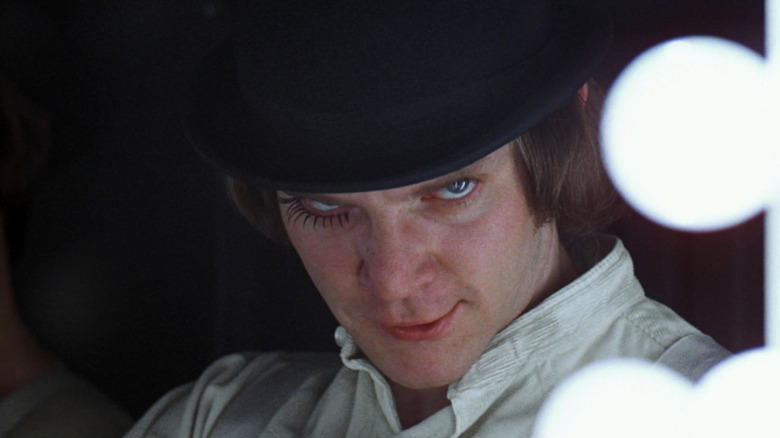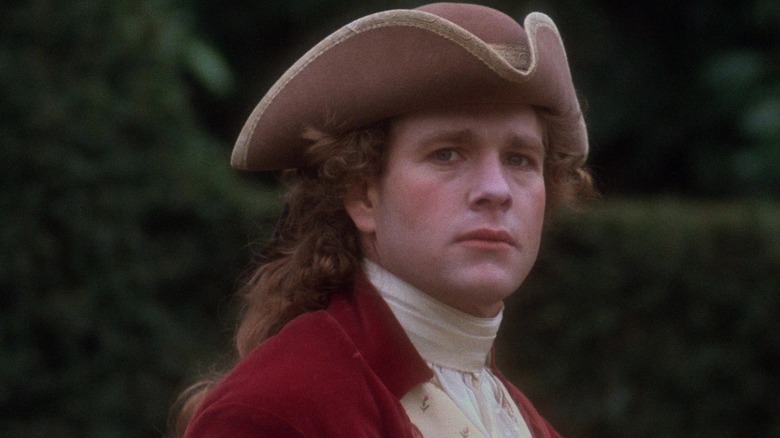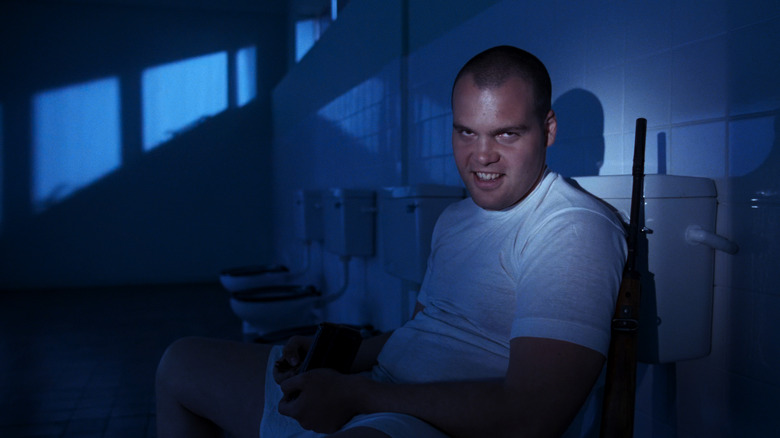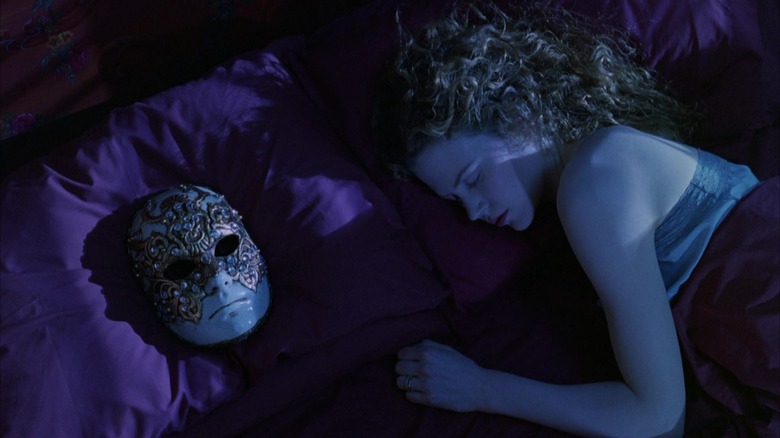When Should Stanley Kubrick Have Won His Best Director Oscar? An Investigation
(Welcome to Did They Get It Right?, a series where we look at Oscars categories from yesteryear and examine whether the Academy's winners stand the test of time.)
Few directors hold as large a place in the hearts of cinephiles as Stanley Kubrick. The mythology of the director as this reclusive, micromanaging perfectionist who would drive people insane by doing 100 takes of a scene has become the stuff of legend. Some people stand in awe of what he was able to accomplish throughout his career on such a grand scale, and some, naturally, want to take him down a peg because of his godlike status amongst a certain sector of film fans. I don't hold Kubrick up as god. He wouldn't be on my Mt. Rushmore of directors. But the man did direct some of the best films ever made. That's a little difficult to deny.
Because of this revered status, it always comes as a surprise that Kubrick never won the Academy Award for Best Director. His sole Oscar win, strangely enough, was for Best Special Effects for "2001: A Space Odyssey," an award that probably should've been given to Douglas Trumbull and the rest of the effects team instead of the director. Like Alfred Hitchcock before him, Kubrick was nominated for Best Director four times, and, for whatever reason, could never grab ahold of that big prize. Regardless of where you put the director of "The Shining" and "Eyes Wide Shut" on your pantheon, it's reasonable to think he should have won at least once, if not a few times. Let's take a look at the four years in which Stanley Kubrick was nominated for Best Director — and a few times when he wasn't — and see whether the Academy blew their chance to recognize a master filmmaker, or if Kubrick just had stiff competition.
Dr. Strangelove
The first Stanley Kubrick film to receive Oscars attention was "Spartacus," which won four of its six nominations. For as big a success as the film was, Kubrick received very little credit for that success, and he even distanced himself from the film over the years, as he was brought in during shooting after Anthony Mann left the picture. It wasn't really his movie. He was just keeping it on the rails.
The major breakthrough came four years later with "Dr. Strangelove or: How I Learned to Stop Worrying and Love the Bomb." The Cold War satire managed four nominations total, all of which were in the "major" categories: Best Picture, Best Actor for Peter Sellers, Best Adapted Screenplay, and Best Director. Unfortunately for Kubrick, he was up against the year's juggernaut. "My Fair Lady" cleaned up that night with eight wins, beating out "Dr. Strangelove" in three of the four categories it was up for (with "Becket" beating it for Screenplay).
Had the year been a race between Stanley Kubrick for "Dr. Strangelove" and George Cukor for "My Fair Lady," I'd choose Kubrick in a heartbeat, even though I do love the Lerner and Loewe musical. You bring in Peter Glenville for "Becket" and Michael Cacoyannis for "Zorba the Greek," and it's still Kubrick in a walk-off. But then you have Robert Stevenson for "Mary Poppins," which comfortably sits in my top three favorite films of all time. "Dr. Strangelove" makes my top 100 — maybe even top 50 — but putting it up against something I hold so dear is a tough spot for any movie. Most would choose Kubrick in that bakeoff, but my vote this year would go to Stevenson, especially because the director never reached these heights ever again.
2001: A Space Odyssey
Kubrick would be back in the Best Director category with his very next film. This would also be the film generally considered to be not just the director's greatest work, but one of the greatest films ever made: "2001: A Space Odyssey." Last year's Sight and Sound poll placed it as the sixth greatest film of all time. This was a groundbreaking, genre-altering work of science-fiction that hasn't been matched in its scope, depth, and beauty before or since. Also, this piece of highly cerebral filmmaking was a gigantic smash hit. The track was all laid out for Stanley Kubrick to walk away with this award.
A few months ago, I dug into the historic 1969 Oscars and saw how the Academy was desperately trying to cling to an old way of making movies. The New Hollywood had arrived, and those entrenched in the business for decades weren't going to see what they had built be run over in the blink of an eye. The directors' branch could recognize the innovation and ambition of "2001: A Space Odyssey," but the rest of the Academy wanted very little to do with Kubrick's film. It couldn't even get a Best Picture nomination. The movie's only win of its four nominations that night was that poorly attributed Best Special Effects Oscar for Kubrick, making his only Oscar win even more confounding.
This will be the easiest call I make in this piece. Stanley Kubrick was straight-up robbed of Best Director for "2001: A Space Odyssey." Carol Reed is a legend, but "Oliver!" is far from his best work. If you still want to have the movie musical win Best Picture, fine, but there's no excuse to not give Best Director to Kubrick this year besides pure stubbornness.
A Clockwork Orange
"A Clockwork Orange" marks Stanley Kubrick's third Best Director nomination in a row. Just looking at these three films, they also showcase a filmmaker totally unwilling to repeat himself. He goes from making this elegant, unknowable tale about the progression of man throughout time to an ultra-violent, X-rated examination of the darkness inside every human being. The film is brutal beyond belief but utterly arresting in every single second. Even still, "A Clockwork Orange" was, again, a massive hit. Whenever someone tries to tell you that Kubrick was the artsy-fartsy auteur who made movies for the elite, just remember that "2001: A Space Odyssey" and "A Clockwork Orange" were both among the top 10 grossers of their respective years.
This film had a very similar Oscars trajectory as "Dr. Strangelove," earning four nominations. The one change is that it received a Best Editing nomination rather than a Best Actor nomination (we'll get to Malcolm McDowell's snub another day). However, the Best Director race this year is easily the most competitive it's been thus far. The recently departed William Friedkin wins the award for "The French Connection," beating out Kubrick, Peter Bogdanovich for "The Last Picture Show," Norman Jewison for "Fiddler on the Roof," and John Schlesinger for "Sunday Bloody Sunday." It's nice when there's a category where every nominee is totally worthy.
Nobody wants to take away Friedkin's Oscar, but I wish I could do some shuffling. My proposal would be to give it to Bogdanovich for "The Last Picture Show," one of my five favorite films ever, and two years later, give it to Friedkin for "The Exorcist." For as remarkable as "A Clockwork Orange" is, I think this year's field is too strong to make Kubrick a foregone conclusion in any way.
Barry Lyndon
Stanley Kubrick's final nomination for Best Director came, once again, with his very next movie. Four years later, he had "Barry Lyndon." While the popular reputation of this movie is being slow and stodgy, causing many people to feel the need to reclaim it as one of Kubrick's overlooked best over the years, the film actually earned the second most nominations of that ceremony with seven, including Best Picture, and it took home four prizes. In fact, this is the Kubrick movie to receive the most Oscar nominations period.
Here's the problem: this year's Academy Awards is arguably the most competitive Academy Awards in their history. The Best Director category this year was so stacked that they infamously left out Steven Spielberg for directing a little film you may have heard of called "Jaws." Miloš Forman wins this year for "One Flew Over the Cuckoo's Nest" over Kubrick, Sidney Lumet for "Dog Day Afternoon," Federico Fellini for "Amarcord," and Robert Altman for "Nashville." This is a murderer's row of some of the best filmmakers to ever make a film, each doing some of the best work of their careers.
In the case of Robert Altman, I would say he did make the best film of his career and should have been the one to win the Oscar, but any one of these five directors would be a worthy winner. You could conceivably have Stanley Kubrick as your first place vote or your fifth place. "One Flew Over the Cuckoo's Nest" was a juggernaut that year, sweeping the top five categories, and "Barry Lyndon" never had much of a shot to crack that. Even though this was technically the film of his to have the most Oscars success, I think it was his worst chance to actually win Best Director.
When Kubrick wasn't nominated
Although Kubrick would have a career that lasted another 24 years, he would only make three more films: "The Shining," "Full Metal Jacket," and "Eyes Wide Shut." It's with this trio that the true myth of Kubrick as this obsessive, megalomaniacal figure who sees the film in his head and meticulously recreates it on screen comes to fruition. Across these three films, all of which are considered bona fide classics today, only one Oscar nomination gets registered: a Best Adapted Screenplay nod for "Full Metal Jacket." In their moment, these three movies were not critically received as rapturously as Kubrick's previous four efforts. "The Shining" and "Eyes Wide Shut," in particular, were met with befuddlement. Business-wise, they all did fine, but were not raking in the bucks by any means.
Once the 1970s were over, the Academy and the film business took a hard pivot out of the New Hollywood and went back to making safer selections. Kubrick's ability to make challenging pictures was a bug more so than the feature it once was. Had "Full Metal Jacket" been released in 1979 and not 1987, you could easily see it among the ranks of "Apocalypse Now" and "All That Jazz." It's not as compatible with "Broadcast News" and "Moonstruck." That isn't a mark on those films' qualities, which I consider to be five and four-star bangers, respectively. I just mean in the landscape of how the Academy is responding to films. 1999, when "Eyes Wide Shut" was released, was a legendary year in cinema, but equally as legendary was how terrible its Oscars were. Stanley Kubrick once could get nominated for every film he made. Then the Academy completely turned its back on him.
When Kubrick should have won
By my count, Stanley Kubrick should have won Best Director twice for his work. One of those times he was nominated, and the other is when he wasn't. The first I mentioned already and have written about before. The fact that Stanley Kubrick didn't win Best Director for "2001: A Space Odyssey" is easily one of the biggest blunders in the 95-year history of the awards, especially because he was nominated. There are plenty of instances of people who should have won not getting nominated because they weren't recognized for their power at the time, but here, they had the chance to do it and didn't.
The other Best Director trophy he should have won — and wasn't even nominated for — was for his final film, "Eyes Wide Shut." Not only is this one of his best films (it may even be his best), but it would actually be a case of the Academy doing something they love to do: giving out a legacy Oscar. Sadly, Stanley Kubrick died before the release of "Eyes Wide Shut," so this wouldn't just be giving someone an Oscar who was overdue for one. This would also be a posthumous award, and even if they didn't understand the film, nobody would argue with this departed master of the craft winning something he had never won before. But also, Kubrick should have won for this movie even if he didn't die.
With Alfred Hitchcock, deciding when he should have won an Oscar was far trickier than one would anticipate. With Stanley Kubrick, the circumstances are incredibly clear. Sometimes the Academy just blows it, and no explanation will be satisfactory. Stanley Kubrick should have had a Best Director Oscar on his mantle, not a Best Special Effects Oscar.
